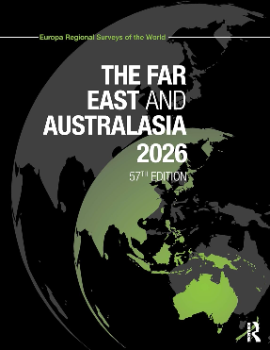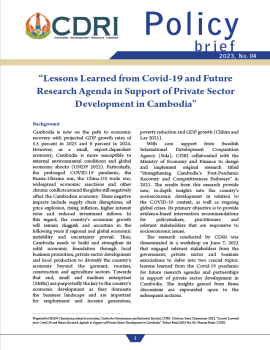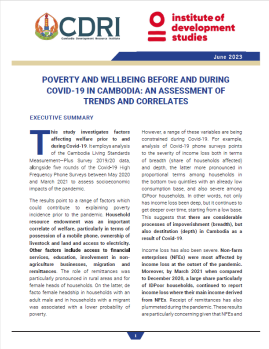
Leadership Pathways for Local Women: Case Studies of Three Communes in Cambodia
Keyword: Local women, leadership pathways, Cambodian commune, sustainable development, women's empowerment
Abstract/Summary
Women’s leadership is necessary for Cambodia’s sustained development. Their involvement in leadership roles in the public sphere and politics is crucial and has been shown to impact positively on poverty reduction. Governments, NGOs and international organisations have been increasingly aware that sustainable development is significantly linked to gender equality and women’s empowerment, key factors in ending extreme poverty. It is only logical then that Cambodia should pay greater attention to developing future generations of women for leadership, especially at the grassroots level. This study aims to determine how this may be achieved.
There is a consensus that the current lack of women’s representation in local politics risks slowing down the pace of local development. The case studies presented in this paper shed light on the complexity of local women leaders’ real-life situations (experiences, behaviours and emotions) and explore the patterns of interaction through which they attained leadership. Three communes in the north-eastern provinces of Kompong Cham, Kratie and Steung Treng provide the empirical basis for the study, which addresses three main research questions: What types of work, personal characteristics and resources influence women to become local leaders? What experiences have women local leaders been through? What can be learned from their backgrounds and experiences to assist in the formation of a practical leadership model to help guide other women aspiring to be local leaders? In response to the latter, the study offers a practical leadership model that is intended to help increase women’s participation in local politics.
This study finds that to achieve leadership, women must build up a portfolio of local work experience. Second, they should have a minimum level of education and demonstrate certain personal characteristics such as personal drive, confidence, gentleness, softness, integrity and friendliness. These internal factors gain people’s trust, recognition and support. Lastly, women need the continuing support of government, NGOs, family, villagers and others, including political parties. Greater opportunities for women to get involved in local politics will enable them to have access to local work experience, build their capacity and enrich their education. The findings will assist organisations and women to address barriers to leadership and to create and make the most of opportunities.



